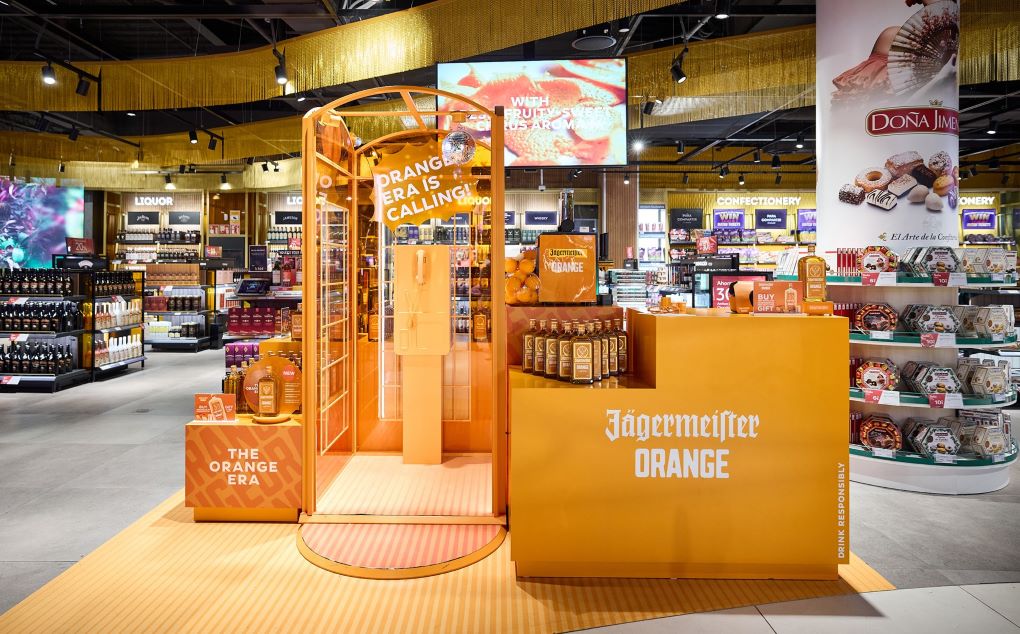 |
Board members Donatienne de Fontaines-Guillaume, Jacques Parson and Keith Spinks take questions from the press |
 |
Keith Spinks: “This [Malaysian tobacco threat] could lead to a snowball effect for the region.” |
 |
Wise counsel: Board members Barry Goddard and Frank O’Connell |
INTERNATIONAL. The managing board of the European Travel Retail Council (ETRC) today singled out the promotion of the travel retail industry’s economic value as a priority during its first press gathering since its formation four months ago.
Council President Frank O’Connell noted that travel retail trade associations were formed with dealing with political issues in mind, but that should not be the only function of the ETRC.
“If we are to represent the industry properly, we have to widen our scope beyond political issues. We need to widen the issues to things that other trade associations would be concerned about,” he said.
He pointed out that travel retail associations had, in the past, not promoted themselves enough. There is little knowledge among the wider public as well as other business communities about the travel retail business, its size and its contributions to society, he said.
Not only would the promotion of economic values raise the profile of the industry, but the research that needs to be done so as to compile information to the public would also benefit the industry itself.
O’Connell said the council is keen on acting as a “catalyst” to gather information about the economics of the trade. Useful information includes footfall, penetration and average spend.
“We can provide a forum for research to be exchanged,” he said.
He noted that while individual airports or retailers may have their own sets of research, but for too long there has been absence of data sharing. “It is a big weakness of the industry. Joining up the bits would benefit everybody,” he said.
The ETRC could also establish links with colleges and universities, which could conduct the research in a neutral fashion, as well as obtain funding from the European Union, he added. “If we can show the economic value of this business, then we can also show that there is a value in obtaining information about it,” said O’Connell.
To boost the strength of the council, the managing board is working on the other priority of growing the council’s membership. The ETRC currently represents over 500 European travel retail-related firms. But it wants to expand its membership to participation from all sectors of the trade.
Beyond these priorities, the council is watching issues, including a recent proposal by the Malaysian Government to scrap duty free tobacco sales, very carefully.
ETRC Secretary-General Keith Spinks said: “We have a very serious threat”¦Singapore, Malaysia and Thailand traditionally all want to be at the forefront of tobacco control. This could lead to a snowball effect for the region.”
The council will be addressing this issue over a conference during the TFWA World Exhibition moderated by Doug Newhouse of Travel Retail Business.
The ETRC also promises to be active over other pressing issues. Secretary Barry Goddard, who is in charge of looking at challenges facing the industry, said the council is dealing with the issue of onboard sales on ships and aircraft.
“It is still a problem. Many countries don’t have onboard sales on aircraft because it is too difficult,” he said, adding that individual airlines should be allowed to choose if they want to offer onboard sales, rather than “be forced to do it or not”.
Another development Goddard is following closely is an upcoming proposal by the European Commission to have a “one-stop shop VAT”. The proposal will allow operators to register for VAT liabilities in the country where they are based, rather than in the individual country in which they operate.
Talking about the ETRC in general, O’Connell concluded: “The ETRC represents a major step forward in addressing the fragmented nature of the representation of our industry.”





